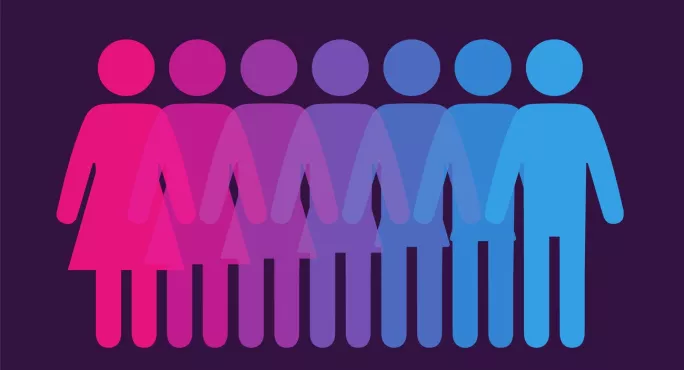- Home
- Why we now share our gender pronouns
Why we now share our gender pronouns

The FE sector proudly represents everybody, from every walk of life. Visit any college, on any given day, and you will find people finding themselves. People discovering who they are and learning to be the most authentic versions of themselves, with the support of college staff and fellow students.
That’s why introducing pronouns into Association of Colleges (AoC) staff email signatures as of today is a small but important step for us to foster an environment where those who interact with the organisation see a little more of the sector represented back at them through their membership body.
Our work on equality and diversity doesn’t begin or end here. I was proud when Sol Chaudhry, chief executive of the National Centre for Diversity, presented me with the Investors in Diversity award at our annual conference in November last year. It was recognition of the important work that had been going on at AoC for a couple of years.
That work was a real team effort, led by Kirsti Lord, our deputy chief executive, working with a group of staff at all levels from across the organisation and involving every one of our staff.
More on this: How to help trans and non-binary students and staff
Quick read: Are your class books reinforcing gender stereotypes?
Background? Gender stereotyping should have no place in schools
Diversity in colleges
Last month we were recognised as 20th in the National Centre for Diversity’s top 100 employers for equality, diversity and inclusion; a clear sign that we are moving in the right direction. But still lots more to do in so many ways.
So, when our staff representative group proposed that AoC staff should have the option to express their gender pronouns as part of their email signatures, I was all ears. I must confess that it was not something that I had been aware of before, but the idea immediately felt right. The group was clear that making this move would be another important step to becoming an inclusive employer and promoting diversity. From today, appropriately at the start of LGBT Month, we will be introducing this as an option for all staff at AoC. My email signature has been changed to include my pronouns: he, him, his.
It’s a very simple notion, sharing gender pronouns in this way normalises the use of them from the outset, while saying to any transgender or non-binary people that they are going to be welcome in this space. It is also very personal - how we would like others to refer to us through our name and pronouns is part of one’s everyday existence. It’s also a profound and basic signal of mutual respect and basic courtesy.
The language we use is important, especially when it comes to describing or referencing someone’s identity. The prevalent binary notion of gender does not work for everyone, with more people wanting to use gender expansive pronouns such as “they, them and theirs” rather than “she, her and hers” or “he, him and his”. Some people may identify as both masculine and feminine or neither and because gender identity is internal - an internal sense of one’s own gender - we don’t necessarily know a person’s correct gender pronoun by looking at them.
If someone is misgendered, it can be hurtful, frustrating and lead to feeling devalued. Of course, sometimes people can use the wrong pronoun for others without realising it or meaning any harm. But to reduce and hopefully avoid distressing situations or leaving people feeling isolated, we are encouraging staff at AoC to talk about it. We are also running activities to help everyone become more confident about the topic and increase their understanding in an open and supportive way.
I’m sure that it will generate conversations that we might never have had otherwise and I’m looking forward to embracing the learning journey many of us have begun and will continue to go on. Achieving a greater level of understanding and respect will help us continue to be the diverse, open, fair and inclusive organisation we all want to work in and for.
David Hughes is chief executive of the Association of Colleges
Keep reading for just £1 per month
You've reached your limit of free articles this month. Subscribe for £1 per month for three months and get:
- Unlimited access to all Tes magazine content
- Exclusive subscriber-only stories
- Award-winning email newsletters



